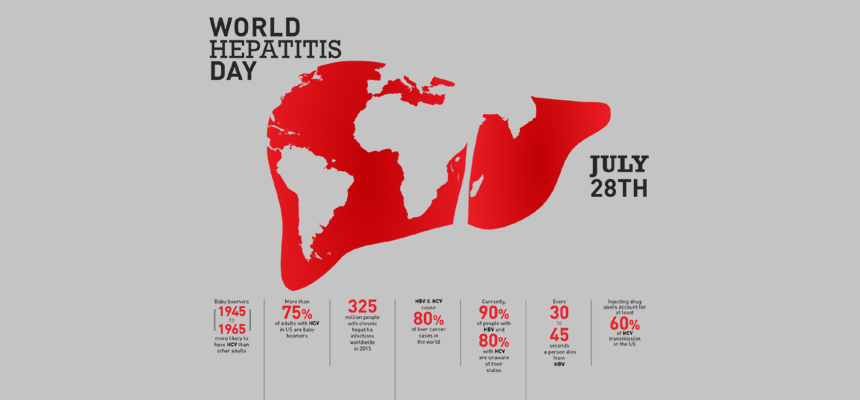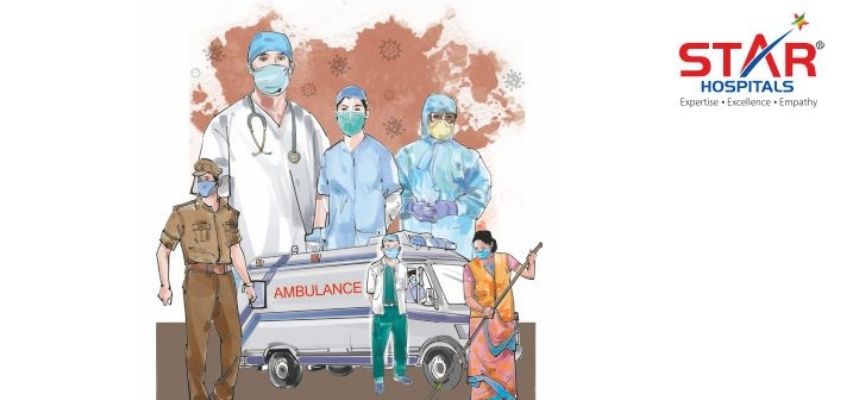Eliminating hepatitis: the Ultimate Goal

The World Hepatitis Day 2019, celebrated this year promotes the theme “Invest in eliminating hepatitis”. Viral hepatitis B and C affect 325 million people worldwide causing 1.4 million deaths a year. It is the second major killer infectious disease after tuberculosis, and 9 times more people are infected with hepatitis than HIV. Hepatitis is preventable, treatable, and in the case of hepatitis C, curable. However, over 80% of people living with hepatitis are lacking prevention, testing, and treatment services. Viral Hepatitis is an illness caused by the liver by various viruses. There are mainly two types of viral hepatitis- infective (spread by contaminated food and water- Hepatitis A and E) and blood-borne (spread by contact with contaminated blood and body fluids- Hepatitis B and C).
 Dr. Ramanjanjaneulu, Gastroenterologist Star Hospital talks extensively about Hepatitis to create awareness amongst people. It is important because Hepatitis is a global health problem. In India, the prevalence of Hepatitis B is 68 percent and Hepatitis C is from 1.5 to 2 percent.
Dr. Ramanjanjaneulu, Gastroenterologist Star Hospital talks extensively about Hepatitis to create awareness amongst people. It is important because Hepatitis is a global health problem. In India, the prevalence of Hepatitis B is 68 percent and Hepatitis C is from 1.5 to 2 percent.
Hepatitis A:
It is the commonest form of acute viral hepatitis worldwide. The virus is present in contaminated food and water and affects the liver on entering the body. It causes inflammation in the liver and liver injury. Rarely acute Hepatitis A causes complications and is preventable.
Hepatitis E:
It is similar to Hepatitis A but it can be more severe and is more likely to cause complications especially in pregnant ladies. Again prevention is the key for Hepatitis E.
Hepatitis B and C :
They are chronic infections that may not show symptoms for years or decades. Timely testing and treatment can save lives. These diseases tend to develop into chronic and long-lasting liver diseases. Hepatitis B liver injury if untreated can progress to liver cirrhosis (liver scarring and permanent liver damage), liver failure and also liver cancer. The function of the liver is lost with a possible risk to life. In a period it may develop renal failure. Hence it is important to be aware and to get you screened for these viruses as safe and very effective treatment is available for Hepatitis B and C.
The common mode of transmission of Hepatitis B:
• It is usually through vertical transmission, from a mother to a newborn. For every pregnant mother, a screening is done to check the prevalence of Hepatitis B.
• The other mode of transmission can be from a child to child, below the age of five years. The infected child can transfer to another child, unaffected.
• Personal items like razors nail clippers, toothbrushes, or glucose monitors can transmit the infection.
• It can get transferred through blood. Infected blood used during blood transfusion can be a cause of concern. Unscreened blood of a donor can lead to the disease.
Nowadays, there is a careful practice of using safe blood, screened timely. The chances are very less to get infected.
• In case, you use needles or syringes, do not share them with others. Today everything is disposable.
• Unprotected Sex can lead to this disease. Due to the high-risk chances of an individual
Hence it is important to be aware and to get you screened for these viruses as safe and very effective treatment is available for Hepatitis B and C. Prevention and treatment can prolong survival chances in liver cancer. We do not have Hepatitis C vaccine but there is available vaccination for Hepatitis A, C. Antiviral Rx is available in Hepatitis B and C. The disease can be controlled in hepatitis B and hepatitis C can be cured.
For Appointment: Dr. Ramanjanjaneulu, Gastroenterologist Star Hospital, Hyderabad, Telangana

 Disclaimer: Welthi.com does not guarantee any specific results as a result of the procedures mentioned here, and the results may vary from person to person.
Disclaimer: Welthi.com does not guarantee any specific results as a result of the procedures mentioned here, and the results may vary from person to person.









